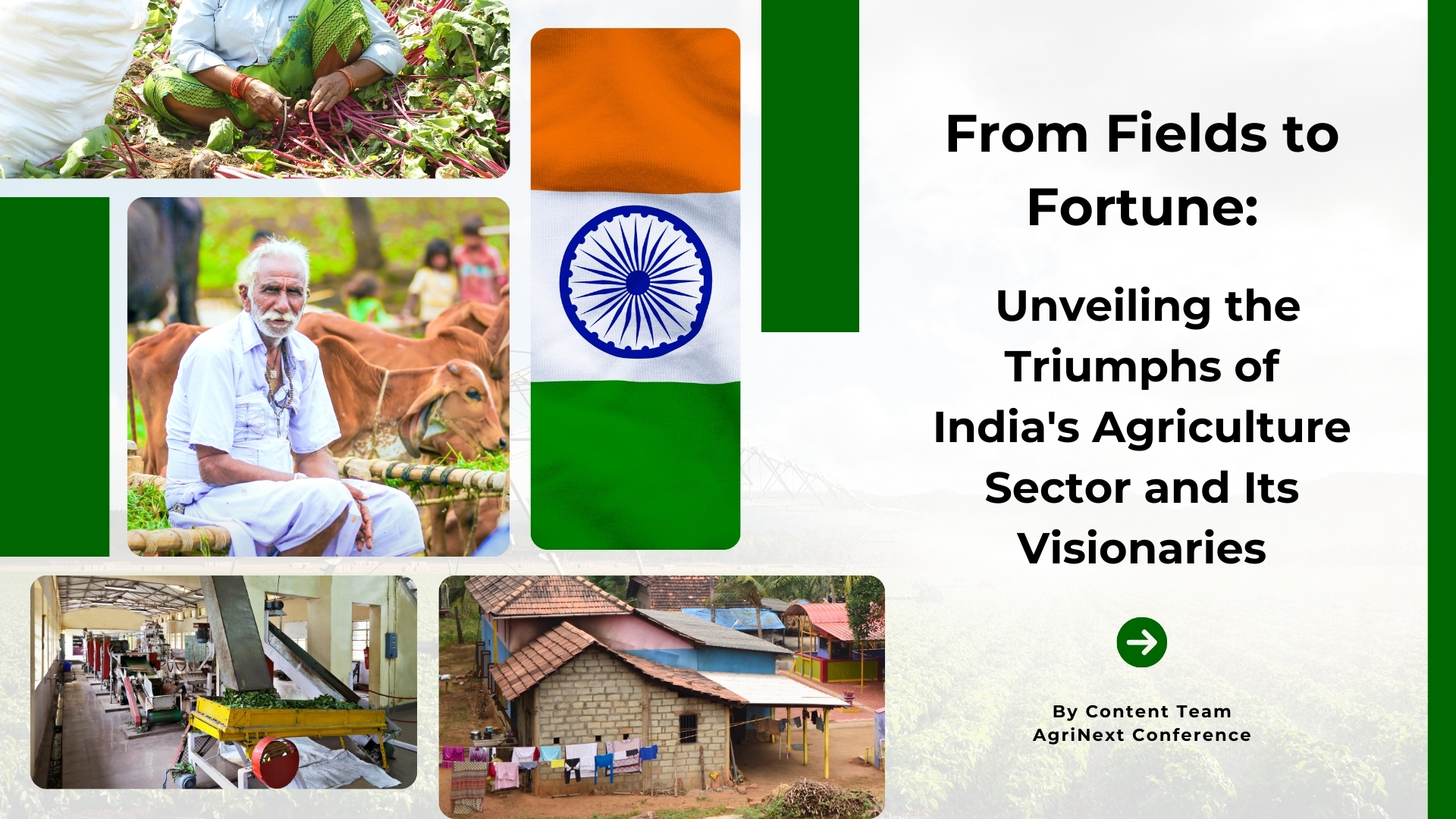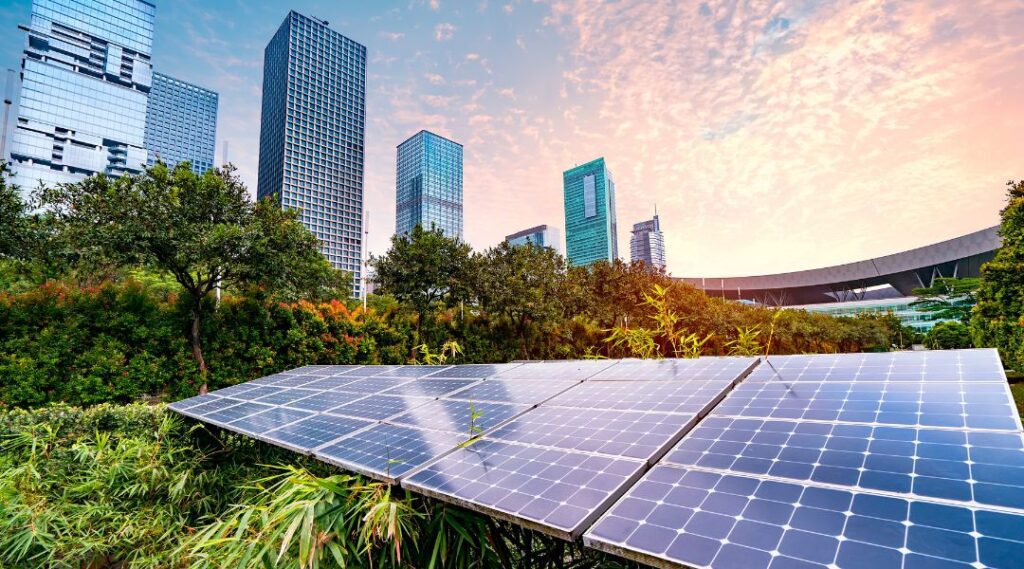
The future of food security will depend on a combination of the ecological prudence of the past and the technological advances of today.
Table of Contents
Dr. M.S . Swaminathan
The Indian agriculture sector has seen growth driven by various factors such as technological advancements, government initiatives, infrastructure development, and increasing demand. Efforts to modernize farming practices, promote agricultural research, and improve access to credit and markets have contributed to this growth. However, challenges like climate change, land degradation, and water scarcity still pose significant hurdles to sustained progress. India ranks among the top producers of various crops globally.

India’s Global Crop Production Overview
Here’s a brief overview of India’s position in the production of some major crops compared to other countries:
Rice:
India is the second-largest producer of rice in the world, following China. The country’s vast rice-growing regions, coupled with favorable climate conditions, contribute to its significant production levels.
Wheat:
India is the second-largest producer of wheat globally, after China. Wheat is a staple food crop in India, and its production plays a crucial role in ensuring food security for the population.
Sugarcane:
India is the second-largest producer of sugarcane after Brazil. Sugarcane cultivation is widespread across various states in India, with the crop being a key raw material for the sugar industry and other by-products like ethanol.
Cotton:
India is one of the largest producers of cotton globally, ranking among the top four along with China, the United States, and Pakistan. Cotton cultivation is significant in states like Gujarat, Maharashtra, Andhra Pradesh, and Punjab.
Pulses:
India is the largest producer of pulses in the world. Pulses such as chickpeas, lentils, and pigeon peas are essential components of the Indian diet, and the country’s production levels contribute to both domestic consumption and exports.
Spices:
India is the largest producer, consumer, and exporter of spices globally. The country is renowned for its diverse range of spices, including pepper, cardamom, turmeric, and cumin, among others.
India’s agricultural sector has undergone significant transformations in recent years, with notable achievements in terms of growth and productivity. The average annual growth rate of 4.6% over the last six years demonstrates the sector’s resilience and capacity for expansion. This growth has not only contributed to India’s overall economic development but has also played a crucial role in ensuring food security for its population.
Furthermore, the emergence of India as a net exporter of agricultural products signifies a shift towards greater global competitiveness and efficiency within the sector. The record-breaking exports of US $50.2 billion in 2021-22 highlight the increasing demand for Indian agricultural products on the international market.
One prominent name in the growth of Indian agriculture is M.S. Swaminathan. Dr. M.S. Swaminathan is often referred to as the “Father of the Green Revolution in India.”
M.S. Swaminathan was inspired by Norman Borlaug, “Father of the Green Revolution”, a plant scientist and agronomist whose work in developing high-yielding crop varieties helped alleviate hunger and poverty in developing countries. He received the Nobel Peace Prize in 1970.
Borlaug’s success in increasing food production and alleviating hunger through agricultural innovation served as a model for Swaminathan’s own work in India. Swaminathan often acknowledged Borlaug’s contributions and viewed him as a mentor and inspiration. Both Swaminathan and Borlaug shared a common goal of using science and technology to address food insecurity and improve the livelihoods of smallholder farmers. Their collaboration and exchange of ideas contributed to the spread of the Green Revolution principles and the adoption of modern agricultural practices in countries like India.
Swaminathan’s research and advocacy played a pivotal role in transforming Indian agriculture during the 1960s and 1970s.His work focused on developing high-yielding varieties of wheat, rice, and other crops, which significantly increased agricultural productivity and helped alleviate food shortages in India. His efforts, along with those of other scientists and policymakers, led to the adoption of modern agricultural practices, improved seeds, and better farming techniques, contributing to the overall growth of the agriculture sector in India.
In addition to his scientific contributions, Swaminathan has been actively involved in agricultural policymaking, rural development, and advocacy for sustainable agriculture and food security. His influence and expertise continue to shape agricultural policies and practices in India and globally.
The Green Revolution involved the adoption of modern agricultural practices, high-yielding crop varieties, and technological innovations to increase food production and alleviate hunger and poverty. Key features of the Green Revolution include:
- Introduction of high-yielding varieties (HYVs) of crops:
- Expansion of irrigation infrastructure:
- use of fertilizers and agrochemicals:
- Mechanization of agriculture:
- Government support and policies:
The Green Revolution resulted in significant increases in food production, especially in staple crops like wheat and rice, leading to improved food security, economic growth, and rural development in many parts of the world. However, it also raised concerns about environmental sustainability, resource depletion, and social equity, highlighting the need for more sustainable and inclusive approaches to agriculture in the long term.
M.S. Swaminathan has been a vocal advocate for sustainable agriculture throughout his career. While he is widely recognized for his contributions to the Green Revolution, he has also emphasized the importance of sustainability in agricultural development.
Swaminathan’s advocacy for sustainable agriculture includes several key aspects:
- Ecological sustainability
- Resource conservation
- Climate resilience
- Biodiversity conservation
- Social equity
M.S. Swaminathan played a significant role in advocating for and shaping the Minimum Support Price (MSP) system in India. As a prominent agricultural scientist and policymaker, Swaminathan highlighted the importance of ensuring remunerative prices for farmers’ produce to enhance their income and improve their livelihoods. Swaminathan’s recommendations, particularly in the National Commission on Farmers (NCF) report, emphasized the need for a comprehensive support system for farmers, including the establishment of a fair and equitable MSP mechanism. He proposed that MSP should not only cover the cost of production but also provide a reasonable profit margin to farmers.
Swaminathan’s vision for the MSP system aligns with his broader goal of promoting the welfare of farmers and achieving sustainable agriculture and rural development in India. While the MSP system has faced criticisms and challenges over the years, Swaminathan’s advocacy for fair prices and support for farmers’ rights continue to shape discussions and policies related to agricultural pricing and income support mechanisms in the country.
Swaminathan has been actively engaged in promoting the United Nations Sustainable Development Goals (SDGs), particularly those related to poverty eradication, food security, and environmental sustainability. He has advocated for integrated approaches to achieve the SDGs, emphasizing the interconnectedness of social, economic, and environmental issues.
Overall, M.S. Swaminathan’s work spans a wide range of fields, including agriculture, biotechnology, biodiversity conservation, rural development, education, and sustainable development. His tireless efforts and visionary leadership have left a lasting impact on India’s agricultural sector and have contributed to global discussions on food security, poverty alleviation, and sustainable development.
Champions of Sustainable Agriculture in India
Here are the other prominent Indian figures who have contributed to the sustainable development of agriculture:
Dr. Rattan Lal:
Dr. Rattan Lal is an Indian-American soil scientist known for his work on sustainable soil management and conservation agriculture. He has been a leading advocate for soil health, carbon sequestration, and sustainable land management practices, receiving numerous awards for his contributions to agriculture and environmental sustainability.
Dr. Vandana Shiva:
Vandana Shiva, is an Indian environmental activist and scholar who has been a prominent advocate for sustainable agriculture, biodiversity conservation, and farmers’ rights. She has campaigned against GMOs, monoculture farming, and industrial agriculture, promoting agroecological approaches and indigenous farming practices.
Dr. Ashok Khosla:
Dr. Ashok Khosla is an Indian environmentalist and social entrepreneur known for his work on sustainable development. He founded Development Alternatives, a non-profit organization focused on promoting sustainable livelihoods, natural resource management, and green entrepreneurship. Khosla has been a strong advocate for sustainable agriculture, emphasizing the importance of ecological restoration and community-based conservation efforts.
Dr. Sunita Narain:
Dr. Sunita Narain is an Indian environmentalist and writer who has been actively involved in advocating for sustainable agriculture and food security. She is the Director General of the Centre for Science and Environment (CSE), a leading environmental research and advocacy organization in India. Narain has campaigned for policies and practices that promote agroecology, organic farming, and climate-resilient agriculture.
Dr. P.K. Joshi:
Dr. P.K. Joshi is an Indian agricultural economist known for his research on sustainable agriculture, rural development, and food policy. He has worked with organizations such as the International Food Policy Research Institute (IFPRI) and the International Maize and Wheat Improvement Center (CIMMYT), focusing on issues related to food security, poverty alleviation, and sustainable agricultural development in India and other developing countries .
These individuals have made significant contributions to advancing sustainable agriculture in India and have been influential voices in promoting environmental stewardship, social equity, and resilience in farming systems.
Overall, these people’s advocacy for sustainable agriculture reflects a holistic approach to agricultural development that seeks to balance productivity, environmental stewardship, and social equity for the benefit of present and future generations.
